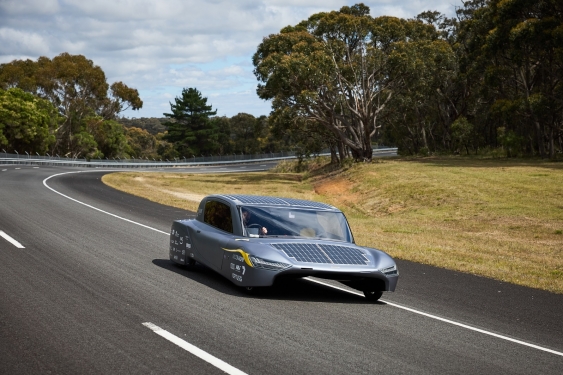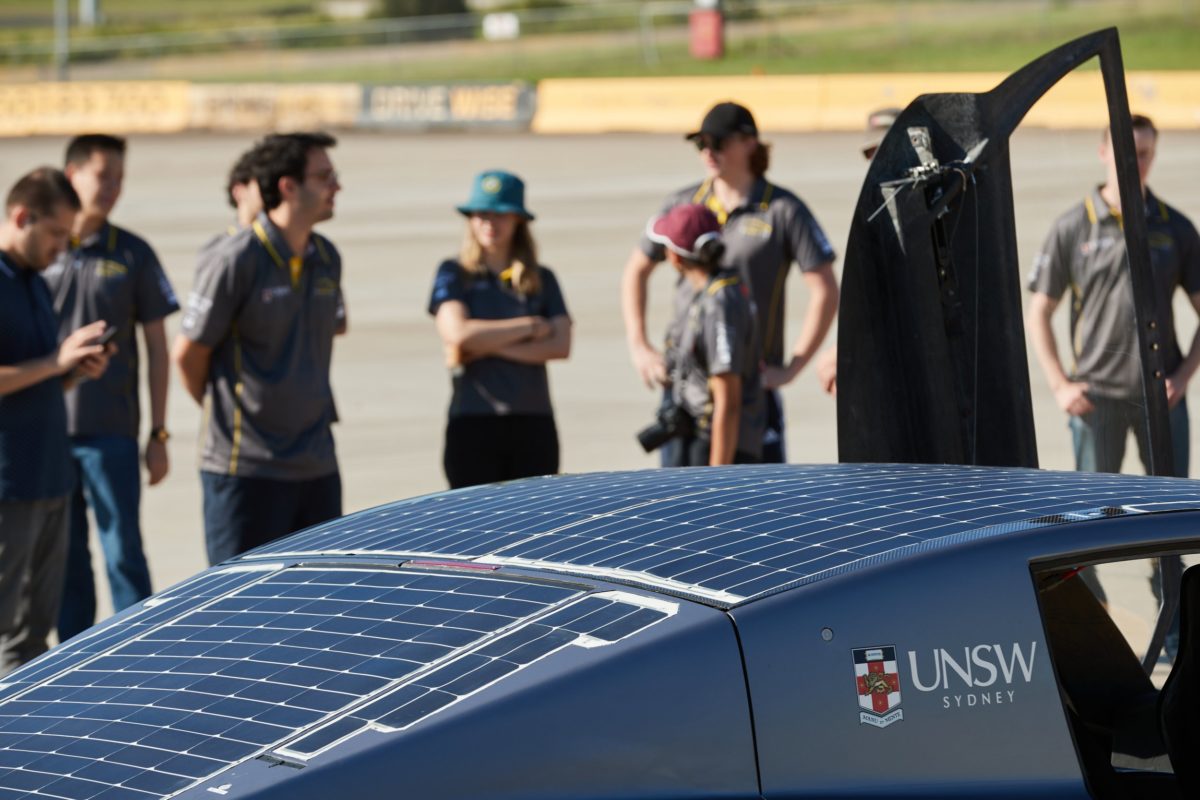The University of New South Wales' (UNSW) solar-powered electric vehicle, the Sunswift 7, averaged nearly 85km/h over 12 hours to unofficially secure the record for the “Fastest electric vehicle over 1000 km on a single charge.”
The official honour – and Guinness World Record certificate – will be conferred once timing information and car telemetry data has been analysed and confirmed by a team of experts.
The car, designed and built by students involved in UNSW’s Sunswift program, posted a time of 11 hours 53.32 minutes for the 1,000 km distance at the Australian Automotive Research Centre in Wensleydale, Victoria.
The Sunswift Racing team is led by Richard Hopkins, who won four F1 world titles at his former post as head of operations at Red Bull, and has a big vision for the Sunswift program at UNSW. Intent on bringing research into broad and commercial applications, the Sunswift program today has a host of partnerships and sub-projects, and includes VIPV.
Hopkins says this world record shows what is possible and what can be achieved, albeit with a significant weight advantage over road legal cars which require features like airbags and air conditioning – components the Sunswift 7 car, built to race, has done away with.
Popular content
The Sunswift 7 car weighs just 500 kg, about one quarter that of a Tesla, and boasts high efficiencies because of its aerodynamic design, motors and drive chain.
“During this record, the energy consumption was just 3.8 kWh/100km, whereas even the most efficient EVs on the road today only achieve a rating of 15kWh/100km and the average is around 20kWh/100km,” Hopkins added.

The claim is close to published reports of the Mercedes-Benz Vision EQXX solar concept car travelling 1,008 kilometres from Stuttgart in Germany to Cassis on the French Mediterranean coast, with an energy consumption of 8.7 kWh/100 km, on public roads, and over the Alps, in what Mercedes stated was 11 hours and 32 minutes of driving time, but a total travel time of 12 hours and 2 minutes, with average speed of 87.4 km/h.
This content is protected by copyright and may not be reused. If you want to cooperate with us and would like to reuse some of our content, please contact: editors@pv-magazine.com.



The big question now, is if this can actually go commercial.